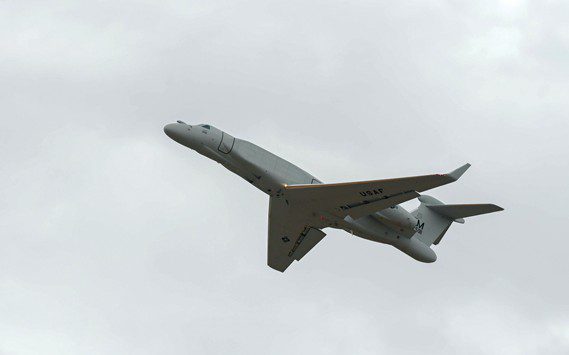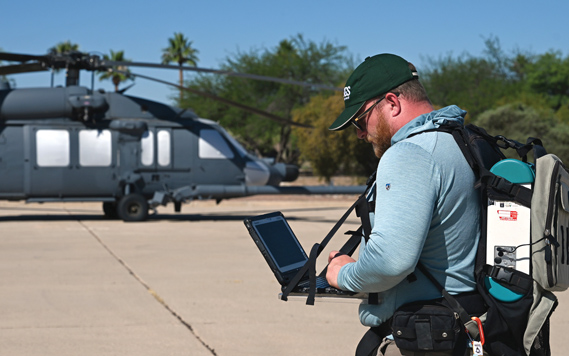For veterans, finding a civilian job can be the hardest part of leaving the military.
But many skills that veterans learn in the service carry over well to the civilian job market. Raytheon employs more than 10,000 veterans, and Raytheon.com asked a few of them for advice on making military experience stand out on a resume. Here are some of their tips:
Describe what you did in civilian terms
Military titles and structure are an enigma to those who never served – and possibly to the HR person who is reading your resume. Putting what you did in clear, common words will help bridge that language barrier. A U.S. Army lieutenant who led a platoon, for example, should list the number of personnel who were under his or her command, and an infantry sergeant should explain that the position required planning operations involving dozens of soldiers.
“You have to take the military terms we are all comfortable with and make them into the whole picture of who you really are and what your talents are,” said retired U.S. Army Col. Philip Foster, who works for Raytheon Space and Airborne Systems. “The intangible stuff is so hard to explain because it’s ingrained in us from day one, it becomes like second nature, and that’s hard to explain sometimes. It’s all language.”
In Foster’s case, instead of saying he served as a G4, he explained that his responsibilities included management-level supply-chain strategy – a job in high demand across civilian markets.
Review your records
It’s possible you learned and did more in the military than you realize. Reading through your records, such as evaluation reports and Verification of Military Experience and Training (VMET) will provide complete and verifiable information about your skills and duties. Emphasize any specialized education, such as a military academy or training in intelligence and logistics.
“Going back though your old evaluation reports may trigger that memory, and say, ‘Yeah, you know what? I did do that,’” said retired U.S. Army Maj. Ryan LeVier, who now works for Raytheon’s Intelligence, Information and Services business.
Show your attention to detail
Military life demands discipline and organization – think uniform regulations and beds with hospital corners. That mentality is attractive to employers. “Attention to detail pays off in the private sector. The military pounds that into your head,” said Steve Upton, a former U.S. Navy technician who worked on several aircraft carriers and is now a program manager for Raytheon’s Intelligence, Information and Services business. “Attention to detail can make the difference between the company losing money and the company making a lot of money.”
Display your discipline on your resume. Use simple, clear typography and formatting. Punctuate correctly and consistently, and scour for common mistakes in spelling and word use.
Enlist allies
If you’re a college student, it’s likely your campus has a chapter of Student Veterans of America – an organization whose mission is to help military veterans succeed in civilian life through education. Raytheon, through its partnership with Student Veterans of America, awards scholarships to help veterans earn degrees of high value in the job market, particularly in the fields of science, technology, engineering and math. The partners also work together throughout the year on other programs to provide career support and mentoring.
Sell your communications skills
No matter what you did in the military, you more than likely mastered the ability to speak directly and listen carefully, said Felicia Jackson, a U.S. Air Force veteran who now works for Raytheon Missile Systems. “In the military, you either listen or you die,” she said. “Being able to communicate effectively is the biggest thing we bring to the table.”
On a resume, you can convey this by noting that you regularly briefed senior commanders, prepared key reports or complied intelligence information for executive-level review.
Talk about your travels
Military job-seekers who have served overseas have a huge advantage, particularly if they’re looking to work for a multinational or international company. If you’ve been deployed abroad, provide detail about where you served and the knowledge you gained. A candidate who is expert in faraway cultures and languages stands out.











